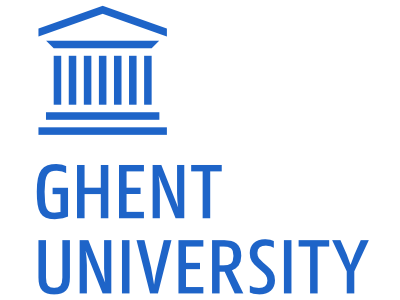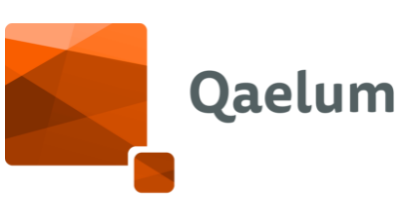Belgian Nuclear Research Center (SCK-CEN)
The Belgian Nuclear Research Centre (SCK-CEN) is a Foundation of Public Utility with a legal status according to private law under the tutorial of the Belgian Federal Minister in charge of Energy. With laboratories in Mol and a registered office in Brussels, it is one of the largest research centres in Belgium. Developments have already resulted in a long list of innovative and forward-looking applications for the medical world, industry and the energy sector.
There are three main research topics, related to important societal issues: the safety of nuclear installations, the well-considered management of radioactive waste and human and environmental protection against ionising radiation.
SCK-CEN also develops, gathers and spreads its knowledge through education and communication, and its available know-how and installations are also used for services to the nuclear industry, the medical sector and the government. Next to the various research facilities related to nuclear reactor technology and development, SCK-CEN is equipped with laboratories related to radiation protection research. The laboratories for Radiation Protection Dosimetry and Calibration and Low-level Radioactivity Measurements evaluate the internal contamination of employees and operators of the nuclear industry and the contamination of the territory and the food chain. SCK-CEN has specialised laboratories for up-to-date research in radiobiology, microbiology and radioecology. The laboratories for reactor dosimetry, for material testing and for radiochemistry support the research reactors and other labs and provide services to external partners and clients.
Role in the project
SCK-CEN leads WP3 focussing on dose and risk assessment of staff, comforters, the public and the environment. An online dosimetry system will be developed as an ALARA tool for the optimisation of doses in nuclear medicine. This will build upon expertise from a previous project (CONCERT project PODIUM) and existing experience in computer modelling, programming and Monte Carlo simulations. Furthermore, new data will be generated on extremity doses of new radionuclides in nuclear medicine and compared to the global risk of staff through the collection of staff radiation dose data. Based on experience from previous measurement campaigns in proton therapy SCK-CEN will measure doses and evaluate local correction factors for staff monitoring around the proton treatment room.
SCK-CEN will apply its knowledge on the performance of different dosimetry systems in the mixed radiation field in proton therapy and assess local correction coefficients for an improved monitoring of staff including different types of personnel (nurses, medical physicists, maintenance and technical personnel). In SINFONIA SCK-CEN will contribute to a study on the impact of radioactive releases from medical installations to the aquatic environments. The study will cover two main aspects a) aquatic dispersion using radionuclide transport models and b) the transfer to human and non- human biota using both dynamic and equilibrium-based transfer models.
UNIVERSITEIT GENT (UGENT)
Today Ghent University attracts over 44,000 students, with a foreign student population of about 6% (40% of PhD students). Ghent University is ranked 66th in the Shanghai and 143th in the Times ranking. The University has participated in 263 research projects in the 7th Framework Programme, of which it coordinated 42 collaborative projects. Ghent University is involved in around 270 projects under Horizon 2020, and coordinates 26 of the collaborative projects. The university provides excellent training opportunities to both young and experienced researchers, for which it has been rewarded the HR Excellence in Research label by the European Commission.
The Divisions of Medical Physics and Radiobiology are part of the Faculty of Medicine and Health Sciences of the Ghent University. The Division of Medical Physics is one of the largest training centres for medical physics experts in Belgium and has a large expertise in patient-specific Monte-Carlo dose and risk simulations in a broad range of medical applications. The Division of Radiobiology focusses on the evaluation of biologic effects of low doses of ionising radiation and the use biomarkers. The Division of Radiobiology is coordinating the reference lab for radiosensitivity testing in Belgium. Both groups have an extensive network in the nuclear medicine, radiology, radiotherapy and radiobiology community throughout Europe and have large expertise in education and training.
Role in the project
The Division of Medical Physics takes the lead in WP6. More specifically, the research group will investigate the dosimetry/radiobiology/radiation protection education for MDs, medical physicists and other medical professionals throughout Europe and will create an interactive MOOC (Massive Open Online Course). UGENT will coordinate the organisation of education and training activities for PhD students, postdoctoral researchers and trainees supported through the action. Furthermore, the Division of Medical Physics will participate in WP2 in the framework of cumulative dose and radiation risk evaluation. The Division of Radiobiology participates in WP4 in analysing stable chromosomal aberrations, gamma H2AX foci, micronuclei and SNP in lymphocytes from cancer patients treated by external beam radiotherapy.
QAELUM NV (QAELUM)
Qaelum is a Belgian spin-off company from the University Hospitals Leuven, founded in 2011. It is a medical device manufacturer specialised in patient safety and quality management in medical imaging. It develops solutions for automated patient radiation dose management and physical-technical quality management in breast cancer screening programs. The companies` products are installed and used in medical facilities all over Europe, the Middle East, the USA and Japan. QAELUM`s customer base includes medical imaging facilities of all sizes and types ranging from installations monitoring 1 CT device, over larger (academic) institutions up to whole regions and provinces. As quality is the company`s highest priority, QAELUM`s quality management system is certified to ISO 13485:2016 (Medical Devices) and the development of the software tools is based on the principles of ISO14971:2019 (Risk Management in Medical Devices). QAELUM is active in developing software solutions for improved patient safety and quality in medical imaging departments. The main product (DOSE) is a patient radiation dose monitoring software that automatically tracks the dose and other parameters of an examination, includes them in the clinical report of the patient and creates a full and advanced database of monitored or calculated parameters relevant to the medical imaging department. DOSE is a CE class IIb certified product (medical device) and FDA compliant as well. QAELUM has expertise in understanding and analysing dosimetric parameters with the ultimate goal to provide more patient-specific dose values, as this is directly linked to the risks of ionising radiation.
Role in the project
QAELUM participates in WP5 that deals with creating the data repository, managing the data and implementing/testing the algorithms that will be created by the other partners. Furthermore, Qaelum will develop an experimental proof-of-concept mechanism to validate the possible integration of the aforementioned AI algorithms into a commercial radiation dose management solution. Finally, in WP6, QAELUM will co-create an interactive multidisciplinary MOOC (Massive Open Online Course) on clinical dosimetry/radiation risk analysis and a context-aware training module to facilitate lifelong learning into the daily practice of the healthcare professional.


